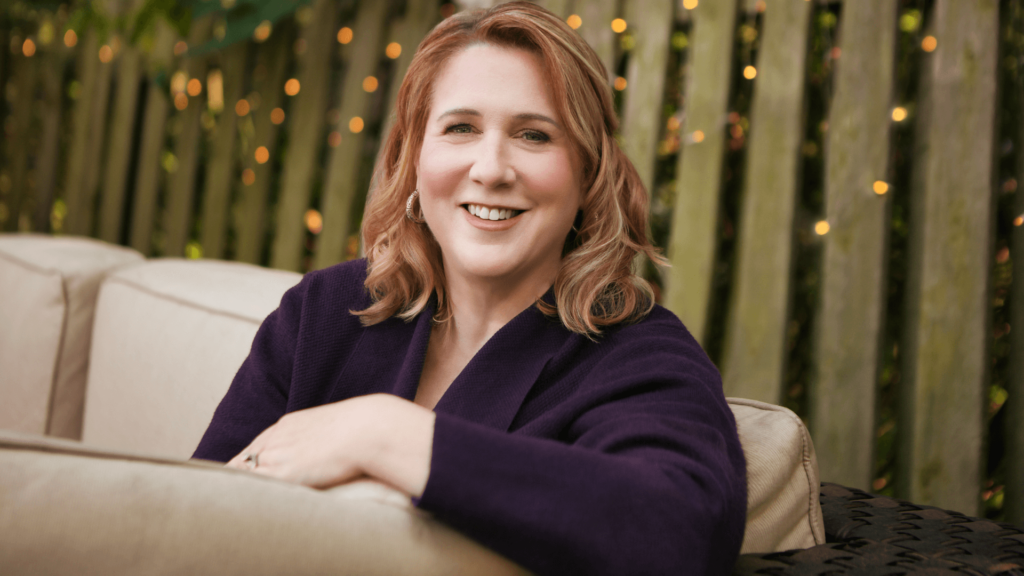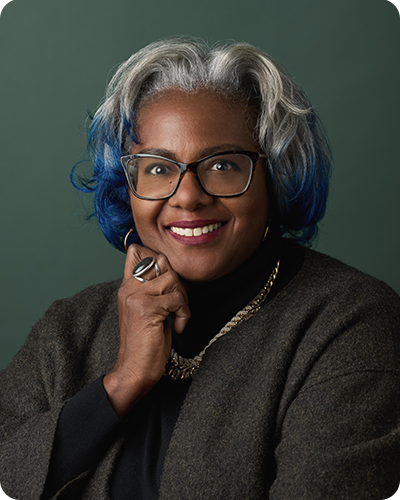Estimated reading time: 10 minutes
MHCC & Series – Diabetes Canada
by Debra Yearwood
Welcome to the fifth installment in the MHCC & series, designed to get to know our HealthPartners membership, and discuss where our realities intersect, and how best to support each other.
November is Diabetes Awareness Month and the 14th marks World Diabetes Day, so MHCC’s Director of Marketing and Communications, Debra Yearwood, sat down with Laura Syron, CEO of Diabetes Canada, to learn about the outsized footprint of the complex condition, and what the organization is doing to shrink it.
I’d been looking forward to my MHCC & conversation with Laura Syron, President and CEO of Diabetes Canada, since I’d marked it in the calendar this summer.
My family is no stranger to diabetes.
It’s been a low thrum in the background of my life for as long as I can remember. For my mother and my many aunts, diabetes was something accepted. We had no preconceived notions about it and I’ve spent most of my life expecting to get it.
Today, we understand that many factors likely made them more susceptible; we’re of Bajan heritage, and diabetes is more common in African, Black, and Caribbean (ABC) folks.
But I became doubly interested in speaking with Laura when I learned that she herself had been diagnosed with type 2 diabetes at age 50.
That’s when her lifelong professional commitment to health advocacy became personal.
When life imitates work
Just moments after a quick hello and introduction on our virtual call, Laura apologized. “I’m sorry, my [glucose] monitor is beeping here,” she laughed ruefully. “This is life with diabetes. You’re never off the clock.”
Just back from her quarterly diabetes check-up, Laura generously reflected on her own experience with a diabetes diagnosis and her ongoing health management. While it was eight years ago, she said she recalls it like yesterday.
“I was sitting in the doctor’s office after a routine exam, and right out of left field she told me I had diabetes.”
Laura paused and took a breath.
“It’s hard to explain how unexpected that felt. How unprepared I was. I sat there, in stunned silence, without a clue about what to do next.”
But shock and dismay weren’t the worst part for Laura.
“I was so embarrassed.”
Here, I stopped her. “Embarrassed? But why?”
And in one of the more eye-opening conversations of my professional life, Laura unraveled the complex emotions that so many feel when hit with a diagnosis where lifestyle factors – can, but don’t always – play a role.

Shame. Blame. Guilt.
“Maybe I’d skipped too many workouts? Had I snuck an extra donut on the weekend? Was I lazy, unmotivated?”
Laura confided she considered hiding her diagnosis, even from her husband.
“In that moment, I didn’t like myself. I thought I deserved this.”
Laura isn’t alone in her experience.
In 2023, in a first-of-its-kind national survey, Diabetes Canada engaged with nearly 2,000 people with lived experience of diabetes. Laura’s feelings were borne out across the community. In fact, shame and blame were echoed by nearly 90 per cent of people living with type 1 diabetes and almost 70 per cent of those with type 2 diabetes.
Now, she has taken up the mantle, in the hope others won’t fall into that trap.
“I want people to be empowered in a way I wasn’t. I want them to know there’s a place they can turn to get information, to seek support, and to become self-advocates.”
In addition to a wealth of existing resources, Diabetes Canada has plans to create a conversation guide for health-care providers.
“It would have made all the difference if my doctor had delivered that same news: ‘You have diabetes.’ And simply added, ‘But it’s not your fault.’”
Stigma, which casts a long shadow on so many illnesses, doesn’t spare people living with diabetes.
But, said Laura, “We’re committed to changing the conversation.”
Rewriting the narrative
Diabetes Canada is working on three fronts.
“This is a marathon, not a sprint. I look at mental health, and how you’ve powerfully shifted the conversation out of the shadows. Today, we’re seeing those efforts bear fruit – from Bell Let’s Talk, to the FACES campaign.”
This is Laura’s ambition for Diabetes Canada. That people become more engaged – whether that’s corporate Canada, workplaces, or schools.
“Because from there, you see an uptick in research dollars, volunteerism you name it.”
To kick-start this virtual cycle, the organization is striving to get ahead of misinformation, which can double the burden on people living with diabetes, as it did for Laura when she was first diagnosed.
“Not only was I facing a major, life-altering diagnosis, but I also thought I’d caused it.”
They are also working against a general apathy.
“Society can be dismissive of diabetes. Don’t get me wrong, we have life-saving treatments. Type 1 diabetes used to be fatal before the advent of insulin. But that isn’t to say that managing a complex illness isn’t a tedious, often exhausting, balancing act. We’re trying to change the attitude that it’s ‘just’ diabetes.”
And finally, stigma.
Laura dubbed the reaction as a ‘societal shrug,’ or a ‘you’ve made your bed’ indifference. But she pointed out, even if that were true, not everyone has the same opportunities that can help with prevention.
“There are social, environmental, and biological factors at play. So, we’re trying to close the compassion gap.”
But it’s not just a deficit of empathy that people with diabetes experience.
It also depletes their finances and takes a toll on mental well-being.
Dollars and sense
“The cost is huge,” emphasized Laura. “I’m talking both in terms of the societal price tag and the individual’s out-of-pocket expenses.”
In just over a decade, the financial impact of diabetes has nearly tripled, from $13 billion in 2013, to $39 billion in 2024. In 2023, according to Telus Health’s annual drug trends report, diabetes medications remained the leading drug category for private insurance claims, with a nearly 30 per cent spike in eligible claim amounts as compared with 2022.
For people living with type 2 diabetes, the yearly outlay can quickly mount to over $10,000. For those with type 1, that figure rises to $18,000, taking a major bite out of any household budget.
Diabetes Canada has an information and referral line, 1-800-BANTING, named after the father of insulin invention, esteemed Canadian researcher, Dr. Frederick Banting.
Pre-pandemic, the calls they fielded were primarily centred on providing education.
“People were calling distressed because their sugars weren’t going down, or because they needed advice on different medication options, and sometimes because they just needed a listening ear.”
But since COVID, the nature of the calls has changed.
Feeling the squeeze
Today, the most frequent callers are people experiencing financial hardship.
“It’s empty wallets. An inability to pay for meds, to cover the insurance co-pay, or even buy the healthy foods so vital to diabetes management.”
I reflected that an ounce of prevention is worth a pound of cure.
Without access to the right services, supports, and treatments, that alarming cost curve isn’t going to trend in the right direction anytime soon.
“That high cost is compounded by a feeling of overwhelm. So, some people will look at what’s involved with diabetes management, in terms of dollars, yes, but also time, energy, mental load, and decide they’d rather opt-out entirely.”
That’s where things get scary, reflected Laura.
“Blindness, amputations, kidney failure, heart disease, these can all result from unmanaged diabetes,” and she continued, “when only about 10 percent of people with diabetes are cared for by an endocrinologist, the remainder rely on family doctors.”
This is a huge problem. According to the Canadian Medical Journal, 6.5 million people in Canada do not have access to regular primary care. In short, either they don’t have a family physician at all, or if they do, they can’t get timely appointments.
Laura has a solution. “We need to expand scope of practice for pharmacists, nurse practitioners, nutritionists. These allied health professionals are so integral. We need to rethink universal health care when so many people with complex needs, like diabetes, are falling outside of it.”
An overcrowded pool
Laura told me four million people in Canada have diabetes, but she provided a powerful analogy to illustrate her point.
“Imagine there are four million people with diabetes swimming in a pool.”
Some, like Laura, are in the shallow end. Others, with more severe illness, are struggling in deeper water.
“Then,” said Laura, “there are another six million people with their feet in the pool [with pre-diabetes], and millions more walking towards it.”
Add to these startling numbers that people living with diabetes are twice as likely to experience depression, and you have a scenario that’s doubly complicated.
“There’s diabetes distress, and then there’s depression, and we’ve got to be on the lookout for both.”
Diabetes distress comes from the constant anxiety and worry that stem from unrelenting decision-making, over and above the usual daily grind.
“One thing that’s unique about diabetes is that the onus is very much on the individual to manage their blood-sugar levels, and this could include lifestyle changes, oral medications, insulin injections, a pump etc.”
But calibrating those can be a challenge.
“It’s taken me eight years to find the right dosage. I won’t get into some of the awful side effects that can present when you don’t respond well to the meds, but at Diabetes Canada, this is exactly why we’re advocating for individualized treatments.”
Metabolizing trauma
Diabetes and depression go hand-in-hand, and Laura advocates embracing best-practices like trauma-informed care, which has long been a gold-standard in mental health treatment.
“We live in these imperfect systems, and I worry that the gap between the haves and the have nots is widening. And with this lack of access comes judgement – and judgement from healthcare providers can cause great harm.”
For example, a diabetic low or high can mimic intoxication. And, given that African, Black, and Caribbean people, as well as those of Indigenous heritage, have higher rates of diabetes to begin with, a bias – even an unconscious one – can turn deadly.
The whole conversation gets me to thinking about how we process trauma in the body, and the imprint it leaves.
People with depression have a 40 to 60 per cent increased risk of developing diabetes, and those living with diabetes are two to three times more likely to experience depression.
It’s that age-old “chicken and egg” conundrum.
But regardless of the order in which one develops these conditions, the metaphorical pool Laura spoke of is growing more crowded by the day.
“Someone slips in every three minutes.”
Until we can drain the pool, the life-sustaining supports these folks need include the kind of wraparound care Laura herself is lucky enough to have.
“Everyone living with diabetes should have access to medication, eye and wound care, a family doctor, and, of course, mental health care. This should be the rule, not the exception.”
Ending diabetes
In 2021, Canada celebrated the 100th anniversary of the discovery of insulin – among our country’s greatest achievements.
“As the birthplace of insulin, Canada has a legacy to uphold,” said Laura. “Yes, millions of lives have been saved, but millions more have diabetes than ever before. We cannot wait another 100 years for a cure.”
Laura points to a range of things people can do, to mark Diabetes Awareness Month, and to help Canada lead the world toward ending diabetes.
“You can get informed and know your risks, share information to raise awareness, or even take the time to declutter before winter, and donate clothes, décor, books, or small household items.”
As we end the call, Laura checks her monitor one more time.
“Won’t it be something when there comes a day when we’ve got a cure.”
Until then, Laura will remain on the clock – at home, and at work.






